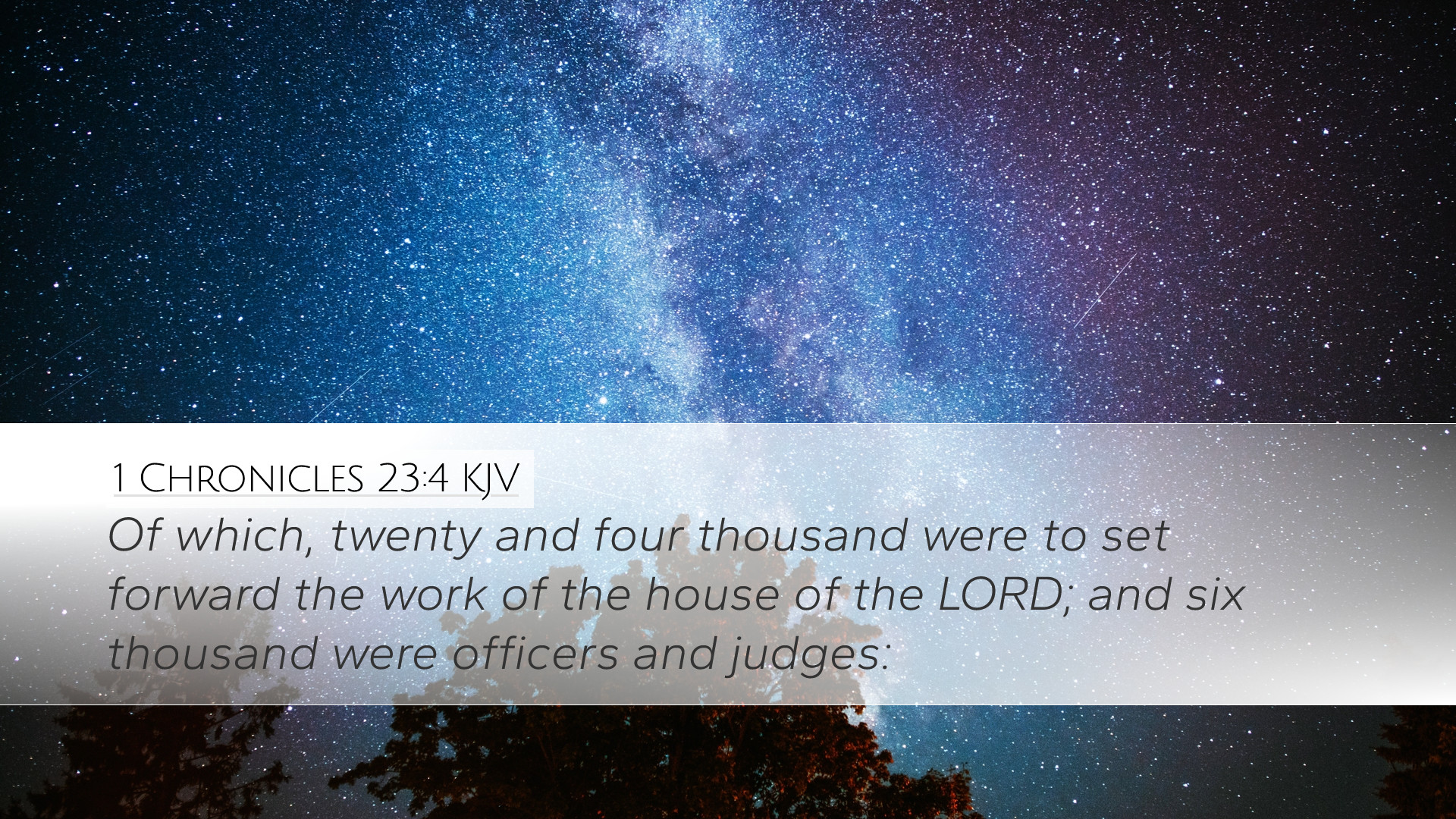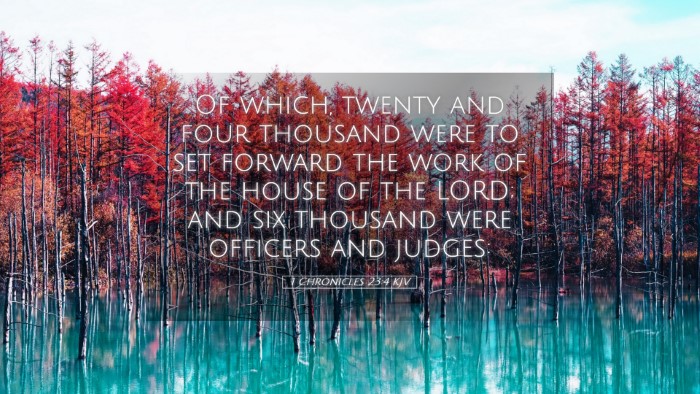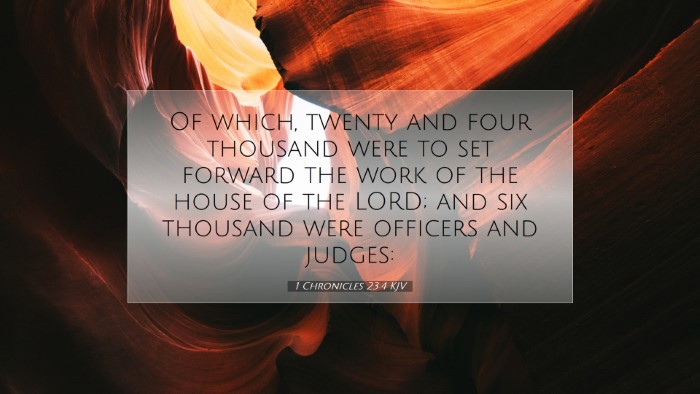Commentary on 1 Chronicles 23:4
"Of these, twenty and four thousand were to oversee the work of the house of the LORD; and six thousand were officers and judges."
Introduction
The passage of 1 Chronicles 23:4 offers insight into the organization of the Levitical priesthood and their responsibilities concerning the worship of God in the temple. This structure highlights God's desire for order and efficiency in sacred matters. In this commentary, we will explore the historical context, the significance of the numbers mentioned, and the implications for worship and service.
Historical Context
Matthew Henry emphasizes the importance of understanding the context of the Chronicles as a re-affirmation of Israel's identity and heritage after the Babylonian exile. Chronicler records the arrangements made by King David for the temple service, outlining the divinely ordained roles for the Levites. The organization detailed in this verse reflects the serious commitment of Israel to maintain a holy worship environment.
According to Albert Barnes, the Israelite community had been through significant trials, and the re-establishment of the temple service was vital for their spiritual renewal. This verse demonstrates the need for diligent governance in worship, directly linking it to the nation's well-being. The appointment of twenty-four thousand Levites to oversee the work of the temple reasserts their essential role in maintaining the rhythm of sacrificial worship and communal spirituality.
Significance of the Numbers
Adam Clarke offers insight into the symbolic meaning of numbers in biblical texts. The choice of twenty-four thousand suggests a sense of completeness and divine order. By organizing their ministry into manageable units, the Levites exemplify principles of division of labor and accountability. This approach not only facilitates the efficient operation of the sanctuary but also teaches modern readers the importance of structured ministry in our own contexts.
Beyond mere administrative roles, these numbers should be understood in the light of the Lord's statement in Exodus 23:25, where obedience leads to blessings for society as a whole. The six thousand officers and judges represent the covenantal community's commitment to upholding justice and order, a vital aspect of reflecting God's holiness among them. Henry notes that such organization allowed for equitable distribution of responsibilities, fostering a sense of shared commitment towards sacred duties.
Responsibilities of the Levites
The division of the Levites into different ranks and roles indicates a system that fosters not only worship but also community leadership. Barnes points out that these Levites served not merely as temple workers but as spiritual leaders and educators of the law. Their roles extended beyond the temple precincts, impacting the lives of the Israelites. The six thousand judges played a critical role in maintaining justice, aligning societal laws with divine expectations.
Clarke emphasizes that the presence of officers highlighted the need for governance in all aspects of life, suggesting that spiritual integrity must find expression in social order. The roles of the officers and judges resonate with contemporary church leadership, reminding pastors and laity alike that efficient administration combined with spiritual oversight is crucial in fostering healthy community dynamics.
Theological Implications
This passage speaks volumes about God’s desire for an orderly worship experience among His people. Henry asserts that God is a God of order, not chaos. Hence, the well-structured allocation of duties among the Levites enhances our understanding that every aspect of worship is to reflect holiness and reverence. It challenges modern congregations to rethink their approaches to worship and church organization while striving after excellence in service.
Moreover, the clear delineation of roles provides the church with a model for teamwork in ministry. Each member, having a unique responsibility, contributes to the greater mission of the Body of Christ, which ultimately leads to communal growth and transformation. This perspective is crucial for leaders in today’s church who endeavor to mobilize their members into meaningful service.
Conclusion
1 Chronicles 23:4 encapsulates the divine principles of order, responsibility, and community in worship. The insights derived from Matthew Henry, Albert Barnes, and Adam Clarke bring forth the importance of these elements in effectively serving the Lord and one another. As we reflect on this verse, may we also be inspired to cultivate a shared spirit of service within our communities, echoing the commitment exemplified by the Levites in ancient Israel.


